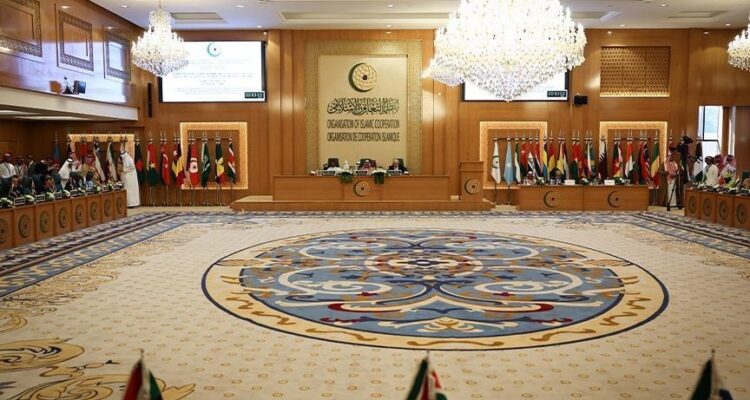OIC holds emergency meeting to address genocide and starvation’ in gaza

The Organisation of Islamic Cooperation (OIC) convened an emergency meeting on Tuesday at its headquarters in Jeddah, Saudi Arabia, to discuss what it described as “genocide and starvation crimes” being committed in Gaza, as well as the targeting of holy sites in the occupied Palestinian territories.
The meeting, held at the level of permanent representatives within the organisation’s executive committee, came amid worsening humanitarian conditions in Gaza following what the OIC said was Israel’s “continued acts of genocide, forced displacement, and starvation.”
In his address to the session, OIC Secretary-General Hissein Brahim Taha said the scale and persistence of the crisis in Gaza represented “a war crime and a stain on the conscience of humanity, and a violation of the principles of justice and dignity.”
He called on the international community to “double efforts to pressure the Israeli occupation to implement a full and lasting ceasefire, open all crossings, deliver humanitarian aid, and ensure Israel’s complete withdrawal from the Gaza Strip.”
Since October 7, 2023, Israel has been accused by the OIC of conducting a campaign of mass killings in Gaza, supported by the United States. The death toll has exceeded 201,000 Palestinians killed or injured, according to the OIC, with thousands still missing and large parts of the population displaced. Starvation, it said, has also claimed many lives.
Taha further warned against Israeli plans to assert full control over the Ibrahimi Mosque in Hebron, describing the attempt to change its identity and heritage as “dangerous.”
He added that the OIC “strongly condemns the repeated assaults on the Al-Aqsa Mosque, the bombing of churches and mosques in Gaza City, in flagrant violation of human values and international conventions.”
He also emphasized that “all actions aimed at Judaizing Jerusalem and isolating it from its Palestinian surroundings are illegal and void under international law and UN resolutions.”
On the same day, the Israeli daily Israel Hayom reported that Israel had decided to transfer administrative authority over the Ibrahimi Mosque from the Palestinian Ministry of Religious Affairs and the Hebron Municipality to a so-called Jewish religious council in the nearby Kiryat Arba settlement.
The paper said the move aims to push forward structural changes at the site—marking the first major shift since the 1994 recommendations of the Shamgar Commission, which divided the mosque’s usage: 63% for Jewish worshippers and 37% for Muslims, following the massacre of 29 Muslim worshippers by Israeli settler Baruch Goldstein.
According to Israel Hayom, Israeli authorities have long sought to carry out major changes at the mosque, including re-roofing the site and constructing a new cover over the Jacob Courtyard, where Jewish prayers are held the majority of the year.
The Ibrahimi Mosque, located in the Old City of Hebron, remains under Israeli control and is home to approximately 400 Israeli settlers protected by around 1,500 soldiers.
About The Author
dailymailafric
I am an avid African news observer, and an active member of Daily Mail Africa.
I’m Passionate about staying informed on diverse topics across the continent,
I actively contribute to publishing on political, economic and cultural developments in Africa.



